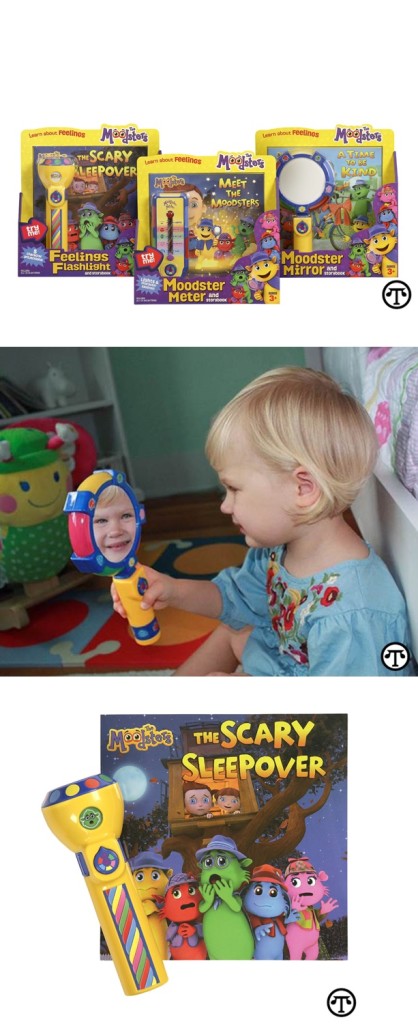
Children who learn how to read emotion on others’ faces—and their own—are often better able to deal with their feelings.
A clever flashlight can help children shine a spotlight on their emotions.
(NAPSI)—As most parents know, small children have no problem letting out their emotions. But how well do they understand what they’re feeling? That skill is known as Emotional Intelligence (EQ), the process by which children learn to recognize, understand and manage their emotions—and EQ is key to a child’s success in life.
According to Marc Brackett, Ph.D., Director of Yale’s Center for Emotional Intelligence, “Research shows that children who learn EQ skills have less anxiety and depression; have fewer attention, learning and behavior problems; are better problem solvers; display greater social and leadership skills; and perform better academically.”
Fortunately, young children can learn simple EQ strategies that will help them manage their emotions in a socially acceptable manner.
What You Can Do
Here are a few things parents can try:
- Teach children a vocabulary for their emotions so they have names for their feelings.
- Encourage them to express emotions through conversation and play, music, art or exercise.
- Create a safe, nonjudgmental environment where kids can share thoughts and feelings—and validate those feelings without telling them how they should feel.
- Be a role model for expressing emotions.
- Read together and talk about what the characters in the story might be feeling.
Now, a new line of books and toys for children between 3 and 7 can help kids learn EQ skills while having fun with five colorful little detectives known as The Moodsters. Each Moodster represents a different emotion—anger, happiness, sadness, love and fear—and they come to the rescue whenever there’s a feelings emergency. The Moodsters give preschoolers a vocabulary for their emotions and strategies to manage them.
With a curriculum rooted in decades of research, The Moodsters help kids handle the everyday challenges of growing up and can foster conversations between parents and preschoolers about feelings.
Books and Toys
- Moodster Meter and Storybook: Young children often don’t have the verbal skills to put their feelings into words. The Moodster Meter puts those tools in the child’s hands—literally. This interactive teaching toy gives children a basic vocabulary of feelings. There’s even a special Power Up button so children can point the arrow to the Moodster that represents how they feel, opening doors for calm communication about emotions.
- Feelings Flashlight and Storybook: Shining a light on feelings has never been easier-or more fun. Before nap time or bedtime, point the flashlight toward the ceiling or a wall and The Moodsters will appear, offering wisdom and humor for every emotion. Included is “The Scary Sleepover” storybook.
- Moodster Mirror and Storybook: Preschoolers are often blissfully unaware of how their emotions show on their faces or how to read others’ faces for clues to their feelings. The Moodster Mirror helps them make the connection between feelings on the inside and facial expressions on the outside. Kids make a happy, sad, angry, scared or loving face into the Moodster Mirror and can see what these feelings look like. By turning the dial, kids select the matching Moodster to hear the character’s wisdom about that particular feeling, which will help kids recognize their feelings and nonverbal cues. Included is “A Time To Be Kind” storybook.
Made by Kids Preferred, one of the world’s largest manufacturers of plush toys and gifts, these are all available at Target stores and at Target.com.
Learn More
For more information, visit www.themoodsters.com and www.denisedanielsparenting.com.
Denise Daniels is a Peabody Award-winning broadcast journalist, parenting and child development expert and author who specializes in the social and emotional development of children.
